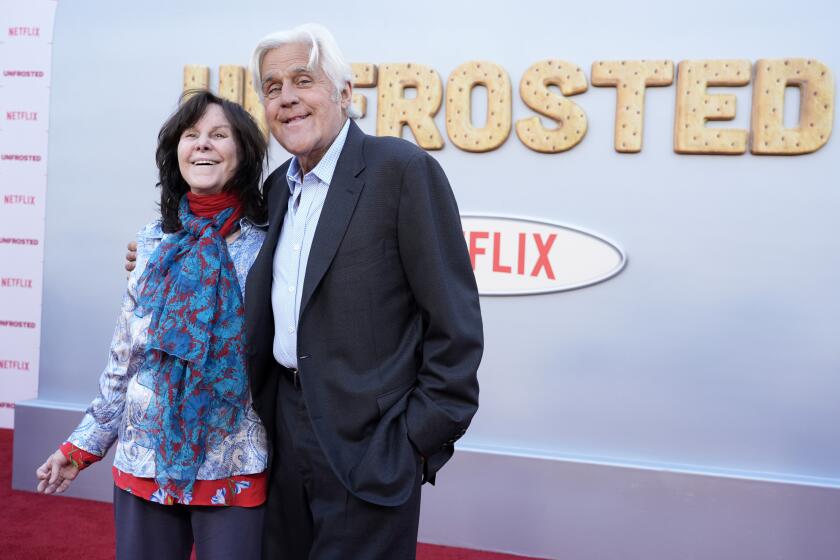Subtlety shines in the translation
- Share via
Politically, America and France can’t seem to stop bickering these days. Musically, though, we fancy the French, and they us. This mutual admiration has been going on for the past hundred years, and politics don’t interfere.
Would that musicians were our diplomats. Monday the four men of the Parisii Quartet brought nothing but goodwill to the Los Angeles County Museum of Art. They are not strangers to its Leo S. Bing Theater, having periodically supplied the Monday Evening Concerts with new music news from the French capital. But this time they played an American program.
The choice of music was quirky, intelligent and gracious. The performances were excellent. The accent was French, charismatically so. What that means in terms of string quartet playing is crystalline textures, crisp articulation, clean rhythms, quick and agile phrasing.
The evening was framed around Philip Glass and John Cage, two Francophile (but not fawningly Francophile) composers. Glass found his voice studying in Paris, where he wrote his first string quartet in the 1960s. He didn’t return to the medium until 1984, when he was asked to supply incidental music for a staging of Samuel Beckett’s soliloquy “Company.”
The score was meant to fill Beckett’s baffling silences, not too adamantly but with just enough character that the four short movements could stand alone as Glass’ String Quartet No. 2. The Parisii left more unsaid than said in its silken playing, creating less an atmosphere of dread, which this music sometimes can, than one of mystery, which it should.
Cage’s quartet, written in 1950 and as lean and intentionally undirected as Satie, has a bit of a French musical accent built into the score. A glassy (though not Glassy) sound comes from the extensive use of harmonics and Cage’s instruction that the players stay away from vibrato.
The Parisii produced a mirror-like shine that could be practically blinding (sonically speaking) but also reflected the subtle delicacy of Cage’s string writing, in which surfaces are so smooth that the slightest dynamic change or stray grace note delightfully ruffles the calm surface.
In between came more expressionistic string quartets by Dorrance Stalvey, the longtime director of the Monday Evening Concerts, and Arif Mardin, a pop music producer who appears to have a secret life as a modernist composer.
Stalvey’s “String Quartet 1989” is as dense-sounding and grainy as the Cage quartet is svelte-sounding and glossy. It thinks mathematically, taking pitch and rhythm aggregates apart and examining their possibilities.
But it also has inherent drama, and in the Parisii’s engaging performance came across like an animated discussion among passionate, if not altogether worldly, philosophers.
Mardin -- whose long list of credits includes producing hit singles and albums for the likes of the Bee Gees, Bette Midler, Dusty Springfield, Aretha Franklin, Willie Nelson and Jewel -- has a spectacular split musical personality. No date was supplied for his “Three Sketches for String Quartet,” but had I not known the identity of its composer, I would have guessed it was written by a Schoenberg student in early 20th century Vienna.
It is competent and not unimaginative music, and the Parisii gave it luster. Leave it to the French, who figured out Jerry Lewis before we did, to show us another intriguing corner of our own culture.
More to Read
The biggest entertainment stories
Get our big stories about Hollywood, film, television, music, arts, culture and more right in your inbox as soon as they publish.
You may occasionally receive promotional content from the Los Angeles Times.











